|
Getting your Trinity Audio player ready...
|
Introducing Windbell – Let the Breeze Cater to Your Needshttps://t.co/FRRnaeU5UO pic.twitter.com/4Ia3ISRYwt
— shua (@cryptoAcorns) September 16, 2020
For far too long consumers of the Internet have allowed the technocratic algorithms dictate what type of content we engage with. Google, Facebook, and Twitter have been playing God with user’s timelines by showing them content that they feel is important or factual, thus are biased by definition.
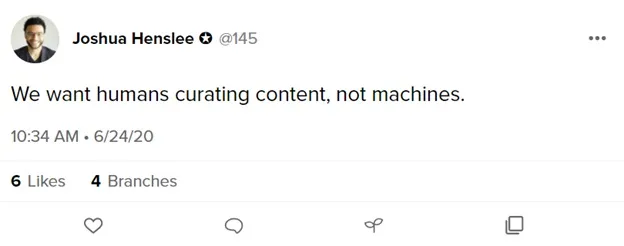
The tech companies insist that they can improve the user’s online experience because they have been plundering their data.
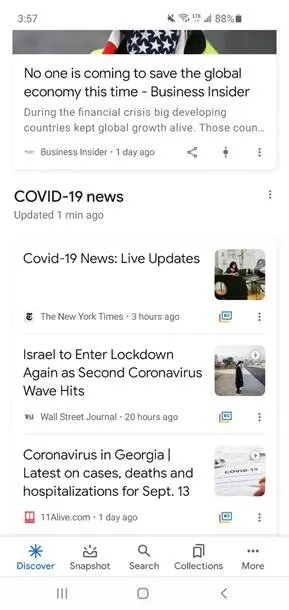
Naive news applications on smartphones display articles based on the user’s browsing history. Ads are deployed in a more overt fashion by the day, rendering some sites unusable.
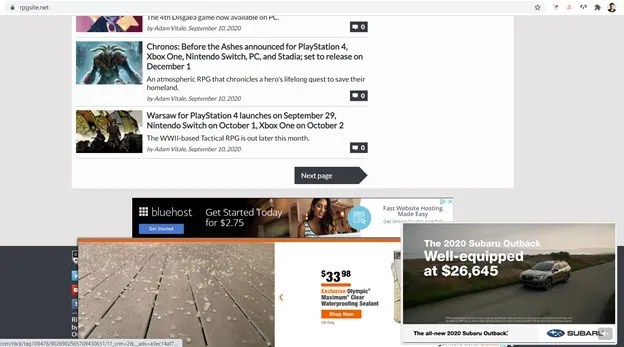
These ads are even personalized from that same data repository, supposedly always showing the user what they want before they know they want it.
My assertion is that these algorithms are so ineffective and politically biased, that they subvert and detract from the online experience. This assertion is why I built Windbell, a service that incentivizes human curation of information via the micropayment capability of Bitcoin.
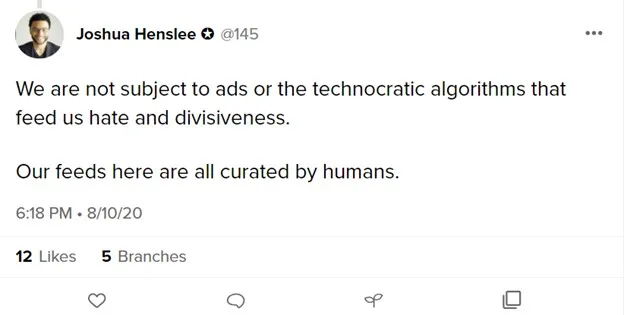
On the social media platform Twetch, ads are non-existent. The user has complete control of their timeline. Twetch can exist without incorporating ads or algorithms due to them earning micro-transactions from every interaction on the platform. Windbell integrates with Twetch by allowing users to allocate any RSS feed, YouTube channel or Twitter handle to a Twetch account.
Users enter the appropriate URL, click ‘Create New Windbell’ and pay $2.18 of Bitcoin to allocate a feed to a Twetch account (referred to as a ‘Windbell’). The Twetch account will immediately start watching the feed and will post Twetches of the new entry (RSS feed entry, YouTube video or Tweet) upon new updates.
To incentivize curation, we share 21.8% of the revenue generated from that Twetch account with the initial funder of the Windbell. Sharing such an amount will create a situation where users want to mine the feeds that are most valuable for themselves and other Twetch users. Feeds that do not generate engagement will cease, running out of funds.
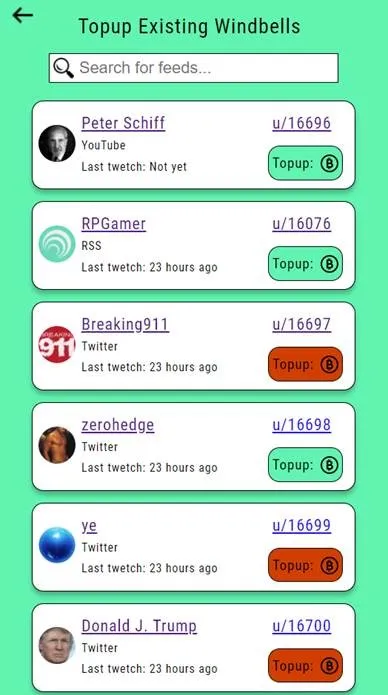
Another motivation I had for building this service is the idea of not leaving Twetch. When I wake up in the morning, I find myself checking too many different sites (Slack, Twitter, Telegram, WhatsApp, Line, etc.).
Why? I want my information in one place, and the combination of Twetch with Bitcoin creates the economic incentives to make this possible. RSS readers or feed aggregators today must implement ads to generate revenue which have the same negative impact as visiting the site directly.
Google, Twitter and Facebook have all actively taken steps to kill off RSS and external consumption for a reason—they need consumers on their platform so they can reave their data and show them their ads. Allowing users to have independent control is incompatible with their business models.
On a platform with native micropayments, I can form a personalized, monetized, human-curated feed without necessarily giving up an ounce of my data. This is why I have created Windbell—so consumers can take back control of their feeds and be rewarded for curating valuable content.
Check out Windbell now at https://windbell.app/
Also, check out the help page for more information.

 07-02-2025
07-02-2025 





